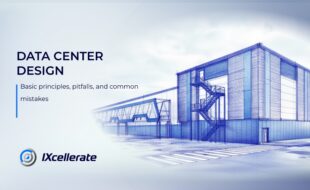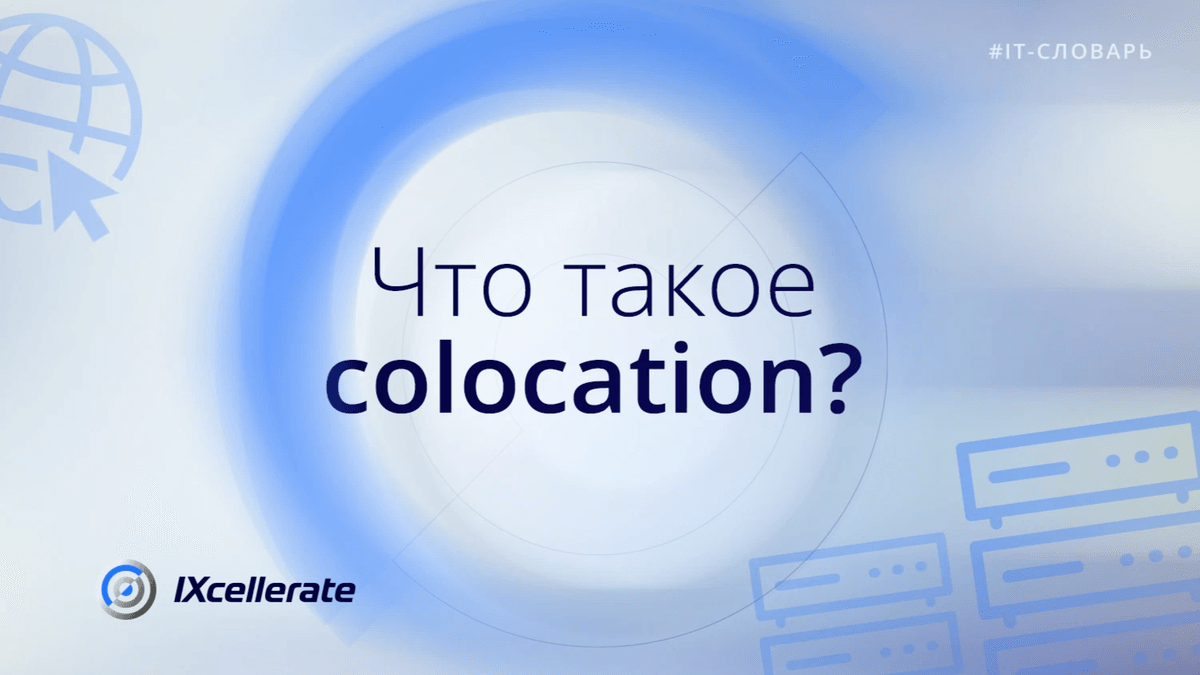
Colocation is a service that involves placing a client’s servers in a specially equipped facility called a data center.
It is also possible to build your own server room, but this is not always convenient, practical, or cost-effective: companies need to find a separate room, ensure uninterrupted power supply, climate control, and internet connection, as well as regularly maintain the equipment to keep it in working order.
This requires additional human, financial, and time resources.
So, what is colocation?
Colocation is a service that involves placing a client’s equipment at a data center operator’s facility and connecting it to high-speed communication channels. Essentially, it is the physical hosting of a client’s IT infrastructure in a commercial data center, where the operator is responsible for:
• cooling and maintaining optimal humidity in the premises;
• uninterrupted power supply;
• physical security and access control;
• fire safety measures;
• connectivity and availability of communication nodes from different providers for signal stability and high data transfer speeds;
• round-the-clock technical support and equipment monitoring.
Advantages of colocation
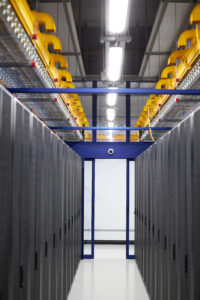 Colocation service is a classic form of IT outsourcing: you entrust professionals with the uninterrupted operation of your server and telecommunications equipment and gain the opportunity to focus on your core business without wasting resources, time, and money on non-core processes. This is the main advantage of this service.
Colocation service is a classic form of IT outsourcing: you entrust professionals with the uninterrupted operation of your server and telecommunications equipment and gain the opportunity to focus on your core business without wasting resources, time, and money on non-core processes. This is the main advantage of this service.
You don’t need to make large capital investments in engineering infrastructure and qualified personnel; data center services are available as part of your operating costs. This is cost-effective and very convenient: the data center operator takes care of all the necessary operating parameters.
By renting space in a data center for colocation, you also get:
• protection against power outages and guaranteed stable operation, which extends the life of your equipment;
• the ability to use the services of specialists 24/7 instead of hiring them as full-time employees;
• security without having to set up a separate service for this purpose at your enterprise;
• the highest possible internet connection speed.
You can rent a server rack or an entire machine room — it all depends on the scale and needs of your business — and expand your presence in the data center as needed. This approach significantly reduces the time required to implement new projects and digital services: with a data center, you can do it faster. Renting a server rack is easier than building your own data center, even a small one, especially now with supply chains constantly changing.
Who is this service for?
 Colocation is right for you if you have IT infrastructure and servers on which you plan to host a resource-intensive project or launch a digital service, but you are unable to provide the proper operating conditions for this equipment in your office.
Colocation is right for you if you have IT infrastructure and servers on which you plan to host a resource-intensive project or launch a digital service, but you are unable to provide the proper operating conditions for this equipment in your office.
Colocation is relevant for companies that store and process large amounts of data and do not have their own space to house and maintain their equipment.
These include:
• Banks. Due to high competition, banks strive to offer their customers the most comfortable service conditions and implement digital services that must work quickly and accurately. Any failure results in financial losses and reduced customer loyalty, which means it is critical for financial institutions to maintain uninterrupted services and provide a secure environment for their data.
• Cloud providers. Managing large amounts of data requires significant capacity and scalability for several years ahead. Data security, backup, and recovery are also essential for cloud providers.
• E-commerce. Online businesses generate a lot of traffic: the more popular an online store is, the more users it needs to serve at the same time. Every minute of downtime is costly, as the company loses both customers and money.
• Gaming. Nothing ruins the experience of an online game like high ping or an unstable connection. Data centers create the ideal environment for gaming services: 100% service availability, high-speed connectivity, and traffic exchange platforms.
• Medicine. A medical center’s website or portal can also experience significant traffic loads. In addition, it stores confidential information—personal data about the health of customers. Leaks of such data are unacceptable.
How to choose a data center
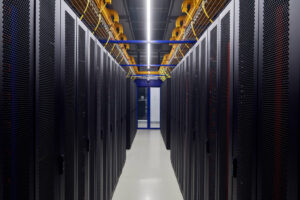 There are many data centers, they are very different, and the tasks and capabilities of customers are always individual. Here are a few aspects to consider when choosing a colocation site:
There are many data centers, they are very different, and the tasks and capabilities of customers are always individual. Here are a few aspects to consider when choosing a colocation site:
• Reputation and reliability of the data center: who trusts the data center, how long they have been working with it, stability and financial transparency of the business, use of modern technologies;
• Infrastructure fault tolerance: levels of redundancy and ability to provide power for uninterrupted operation of your equipment;
• Level of service: what guarantees are specified in the service level agreement (SLA) and what are the contractual obligations of the data center operator, including equipment operating regulations, response times, etc.;
• Connectivity and high-speed data transfer guarantees: direct connection to various telecom operators, at least two cable entries into the building, presence of peering platforms and cloud providers; • Certificates and permits required for operation – licenses, results of independent audits and assessments of the condition of infrastructure and processes;
• Team and level of professionalism – values and principles of staff interaction, experience in the data center industry, knowledge, and regular training.
Understanding the primary tasks of your business will help you decide on a colocation service provider: which data center indicators and capabilities will be critical for solving them, which are desirable, and which can be neglected.
Types of data centers for colocation
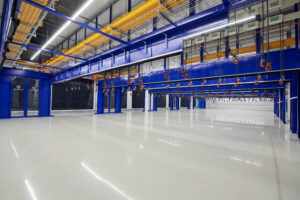 Data centers are classified into the following types according to their level of reliability (there are several standards and certification models worldwide):
Data centers are classified into the following types according to their level of reliability (there are several standards and certification models worldwide):
• Tier I/Level 1/Rated-1. The main distinguishing feature of this level is the absence of redundant infrastructure, an autonomous power source, and a diesel generator. The disadvantage of such data centers is that in the event of a breakdown, equipment can only be repaired if the entire data center is shut down. Fault tolerance is 99.671%, and possible downtime exceeds 28 hours per year.
• Tier II/Level 2/Rated-2. There is partial redundancy, but repairs still require the data center to be shut down. The fault tolerance is 99.741%. The maximum downtime is 22 hours per year.
• Tier III/Level 31/Rated-3. Scheduled maintenance is carried out without shutting down the data center, and the main equipment and technology are duplicated. Mandatory requirements include the data center being located in a separate building with a fenced area and its own fleet of diesel generators. Fault tolerance is 99.982%, and downtime does not exceed 95 minutes per year.
• Tier IV/Level 4/Rated-4. The most reliable data centers with the highest possible fault tolerance of 99.995%. Downtime does not exceed 26 minutes per year.
Data center location
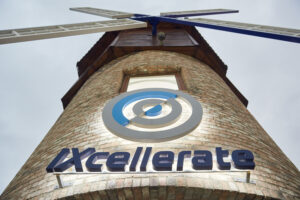 When is it important to consider the geographical location of a data center?
When is it important to consider the geographical location of a data center?
• If you collect and store personal data (of customers, buyers, visitors). In this case, the data center must be located in the Russian Federation in accordance with the law (Federal Law No. 152).
• If your specialists are planning to travel to maintain the servers. Then it would be logical to choose a data center located near the company’s office or within reach by two public transport routes.
• If your service users are sensitive to signal delays, we recommend colocation in a data center no more than 30 milliseconds away from the user in terms of response time.
Additional risks and external factors affecting the performance and physical security of the data center are also taken into account, including distance from airports, the presence of long-distance roads, proximity to treatment facilities, location in a residential area, etc.
Looking for reliable colocation on favorable terms? Write to us – we will tell you more about the available options.
